Mini-Conference Themes
Each mini-conference will consist of 3 to 6 panels, which will be featured as a separate stream in the program. Each panel will have a discussant, meaning that selected participants must submit a completed paper in advance, by 2 June 2020. Submissions for panels will be open to all scholars on the basis of an extended abstract. If a paper proposal cannot be accommodated within a mini-conference, organizers will forward it to the most appropriate research network as a regular submission.
Contested Law – Contested Social Orders? Technological and Transnational Challenges to the Rule and to the Making of Law
detailed info Birgit Apitzsch
Birgit Apitzsch
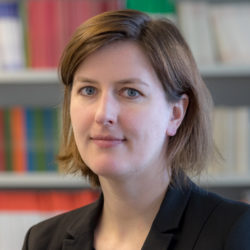
 Britta Rehder
Britta Rehder
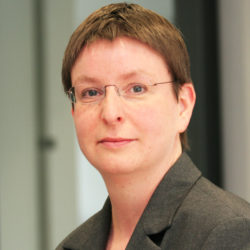
 Katharina van Elten
Katharina van Elten

 Berthold Vogel
Berthold Vogel

The law is central both for enabling markets, new actors or technologies, and for mitigating the social consequences of broader transformations. The law and legal systems, however, are social orders as well that can and should be included in socio-economic analyses. They do not only shape market conditions, but they are subject to contestations themselves. This affects the process of legislation, but also the jurisdiction, the interpretation and reinterpretation of legal norms within the professional community of legal experts, and legal mobilization.
This mini-conference invites contributions which explore dynamics within and around legal systems which unfold in the context of new technologies, transnationalization, or transformations within political economies:
1) Technological challenges to the law and the legal system:New technologies, especially online platforms which offer access to legal advice, and the introduction of artificial intelligence into analyses which provide the basis for setting up contracts or the provision of legal advice, are gaining in importance and spreading rapidly to different legal systems and legal fields. How do these ‘legal technologies’ mediate the access to the legal system? How do they relate to established processes, institutions and actors within the legal system?
2) Transnational challenges to the law and the legal system:Markets, social movements and life worlds which cross national borders raise questions of what laws apply, and how disruptive consequences of rapid market expansion can best be mitigated. In addition, in the last decades, new arenas, actors and organizations for legal support and dispute resolution have been established, thereby challenging traditional arenas. How do they relate to or challenge each other?
3) Legal systems and collective action:Transnationalization also implies the transplant of procedural laws from one legal order to another one. In Europe, and to a large extent fostered by the European Union institutions, the slow but steady emergence of collective litigation rights can be observed. The implementation of “class-action-style”-lawsuits signals the globalization of US-American law. In which regions of the world can this process be observed? How far-reaching is it? And how does this affect the traditional mechanisms of decision-making and conflict resolution in modern political economies?
4) Dynamics between the legal system and other institutions:The law is gaining in importance in different social spheres which hitherto have relied on other forms of regulation. For instance, setting minimum wages in Germany is discussed as a challenge to, but also as a support of corporatist systems of interest representation and mediation. Similarly, legal conflict resolution regarding discrimination is considered as a trend towards more individualistic forms of interest mediation, but also as an instrument which can be used strategically by unions. Therefore, we invite contributions which discuss dynamics between the legal and other systems of regulation.
Crisis, Temporality, and Governance
detailed info André Vereta-Nahoum
André Vereta-Nahoum
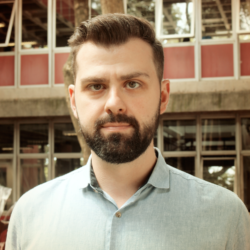
André Vereta-Nahoum is professor of Sociology at the University of São Paulo, associate researcher at Cebrap (Brazilian Center for Analysis and Planning), and at Nucec (
 Simone Polillo
Simone Polillo
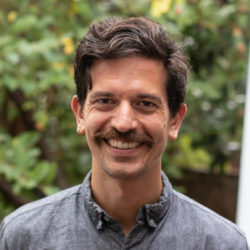
Simone Polillo is Associate Professor of Sociology at the University of Virginia. He works at the intersection of cultural, political, and economic sociology, with a focus on money, finance, globalization, and the sociology of expertise and ideas. He is the author of Conservatives versus Wildcats: A Sociology of Financial Conflict (Stanford University Press, 2013) and The Ascent of Market Efficiency: Finance that Cannot Be Proven (Cornell University Press, 2020); and coeditor of Beyond Liquidity (with Brad Prasanek, Routledge, 2013). His current research centers on the public face of technocracy, and especially of institutions of monetary governance like central banks.
The idea of crisis may be as old as modernity (Koselleck, 2015), but, over the past decade, as crisis texts have become a “veritable industry” (to paraphrase Roitman, 2013: 3), scholars have joined public debate by drawing attention to the conditions of possibility of crisis, its uses and effects (e.g. Appadurai, 2015; Bear, 2015; Mounk, 2018; Przeworski, 2019; Streeck 2017). Following up on this emerging interdisciplinary work on the multiple conceptualizations and practices of crisis, we are interested in two broad and interconnected themes: the relationship between crisis and governance, and the relationship between crisis and time.
The first theme encompasses how crisis works as a political strategy and as a way of governing. Crisis is often associated with critique (Koselleck, 2015), when those who declare a state of affairs to be in crisis do so in the hope of summoning support towards changing the status quo. However, crisis makes it possible to associate a present state of affairs with previous choices, and so it serves to justify the implementation of significant reforms that are presented as exceptional but unavoidable measures – the only solutions to the emergencies. As a result, as Roitman (2013) argues, crisis can also blind critics to the assumptions behind declaring a state of affairs in crisis, to the effects of unexamined questions about what an enacted crisis refers to, and of policy options and shifts that are presented as necessary consequences of the enactment.
The relationship between the practice of crisis, and narratives about what makes a state of affairs normal, conventional, or settled, also hinges on particular assumptions about time and temporality, which is the second theme we want to explore. A crisis declared to be temporary requires different interpretative work and temporal narratives and does different work than a crisis perceived to be more secular or structural; a past crisis can affect interpretations about the present and responses in the form of future developments, but so can the threat of crisis in some more or less distant future. Particular local, regional, and national historical trajectories may also affect how crises are enacted and perceived, and how responses to the crisis are debated and translated into policy. The exceptionality or normalcy associated with a state of affairs considered to be a crisis must be analyzed and critically assessed. Conflicts between different and potentially incompatible time horizons may generate crisis, but also open opportunities for the strategic deployment of crisis in order to shift the balance of power and shape the range of available policy choices.
Within the broader themes of crisis and governance, and crisis and time, exemplary questions we invite participants to consider include the following:
- Who has the authority to declare a crisis, and what happens when other powerful agents (whether experts or publics) reject this characterization?
- Which material and ideational devices are employed to enact crises, and how does the temporal orientation of crisis vary as a result?
- How do particular historical trajectories—punctuated by crises or not—influence the enactment of crises?
Critical Reflections on Socio-Economic Statistics for Development: Past, Present, and Future
detailed info Roberto Aragão
Roberto Aragão

Roberto Aragão is a huge enthusiast for subjects related to the development process. His academic and work equipped him with deep knowledge about the Brazilian’s main macroeconomic statistics. Nowadays, he is a PhD Candidate in Political Economy at the University of Amsterdam. He investigates political dimensions of the construction and use of Brazilian statistics in general, and economic indicators in particular.
 Daniel DeRock
Daniel DeRock

Daniel DeRock is a PhD candidate in the political science department of the University of Amsterdam. He is currently researching the global governance of economic and social indicators with a focus on the United Nations, World Bank, and International Monetary Fund.
 Joan van Heijster
Joan van Heijster

Joan van Heijster is a PhD Candidate focusing on the politics of macroeconomic indicators in China. In her research she traces the history of the Gross Domestic Product (GDP) indicator and tries to understand how developments in the Chinese political economy drive the changes in the measurement and (political) uses of GDP. She has a background in International Relations with a focus on Asian political economy and the BRICS countries.
 Daniel Mügge
Daniel Mügge

Daniel Mügge is Professor of Political Arithmetic at the University of Amsterdam. His research examines the political underbelly of macroeconomic statistics, and he currently leads two large research projects on the topic. At the University of Amsterdam, he leads the FickleFormulas research team that investigates the political economy of macroeconomic indicators and the political origins of the formulas through which we calculate them—basically asking why we measure our economies the way we do. Daniel is currently writing a book on the topic that is under contract at Harvard University Press. This research is funded by the ERC and NWO, the Dutch Organization for Scientific Research.
Daniel Mügge also leads the workpackage “Banking Crisis and Financial Sustainability” in the Horizon2020 project ENLIGHTEN: European Legitimacy in Governing Through Hard Times. In the past, he has published widely on the politics of financial regulation and accounting standards. He spent the first half of 2012 as a visiting scholar at the Center for European Studies at Harvard University; he returned to spend the whole academic year 2014/15 there, as well.
What is the role of statistics in development? The earliest statistics counted people and their wealth with an eye to boosting state capacity. Over time, however, socio-economic statistics morphed from highly targeted governance tools into encompassing lenses through which to see and assess ‘development’. Nevertheless, the statistics in use today are in many ways relics of the past, lagging behind rapid social and economic change. Critics argue that these numbers increasingly fail to capture what is happening on the ground and urge serious review and revision. At the same time, in a world increasingly filled with data and new technologies, statistics penetrate ever more institutional domains. Just as with more traditional government statistics, however, these new forms are liable to be beset with problems. They may reveal or hide new axes of inequality and reinforce existing ones. On top, ubiquitous data collection feeds public anxieties about surveillance and control. New trends in statistics for development therefore deserve our careful attention.
This mini-conference proposes a reflection on the past, present, and future of statistics as tools for development across the world. We particularly welcome contributions presenting empirical evidence or exploring theoretical aspects about the following issues (questions are not exhaustive):
- The history of statistics in development thinking: How have statistics shaped development paradigms?
- Macroeconomic statistics today and their limitations: Do headline indicators like GDP, unemployment, inflation, public debt and deficit reflect socio-economic realities, or distort them? Why do these macroeconomic indicators persist?
- The future of statistics for development and how to tackle global inequalities: What kinds of biases, pitfalls, and potentials are likely to emerge and how might they affect development outcomes?
- Expertise, ideas, and agency in statistics: How do professionals and expert networks decide how economic indicators are calculated?
- Statistics and development in a multipolar world: To what extent are changes in the global political-economic order reflected in the push and pull over statistics?
Selection criteria and financial support
The organizers hope to include perspectives from diverse vantage points, including from countries that have traditionally been the objects of international organizations’ ‘development policies’. This mini-conference does encourage diversity along a range of dimensions. To facilitate that, we offer financial support (return flight ticket and 4 nights of hotel accommodation in Amsterdam) for 4 (four) mini-conference participants. Financial support is intended for participants who lack the financial means to attend the conference and who come from countries and regions that are traditionally underrepresented in European and North American academic circles. This support is made possible by the European Research Council (ERC) FICKLEFORMS starting grant (637883). Scholars who are interested in applying for such support can send an email to the organizing team at the same time as they submit their application to the mini-conference in the usual manner.
Decolonizing “Development”: Theories, Methods and Research
detailed info Julian Go
Julian Go

Julian Go‘s research explores the social logics, forms and impact of empires and colonialism; postcolonial/decolonial thought and related questions of social theory, epistemology, and knowledge; and global historical sociology. Much of Go’s work has focused on the US empire, resulting in articles and books such as The American Colonial State in the Philippines: Global Perspectives (co-edited with Anne Foster, Duke University Press, 2003), American Empire and the Politics of Meaning (Duke University Press, 2008) and Patterns of Empire: the British and American Empires, 1688 to Present (Cambridge University Press, 2011). His other work is on postcolonial thought and social theory, culminating in his book Postcolonial Thought and Social Theory, Oxford, 2016; and global historical sociology and transnational field theory: Fielding Transnationalism (co-edited
 Zophia Edwards
Zophia Edwards
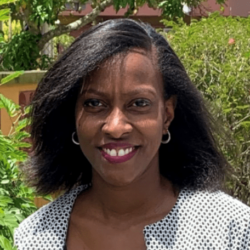
Zophia Edwards‘ research examines the impacts of colonialism and multiracial labor movements on state formation and human development in the Global South, with a particular focus on resource-rich countries. She has published in International Journal of Comparative Sociology, Studies in International Comparative Development, Political Power and Social Theory, among others.
In 2019, the Amsterdam Museum announced that it will remove all references to the Dutch “Golden Age” from its galleries, in recognition of the Netherlands’ role in perpetuating colonial brutalities and the transatlantic slave trade. This “decolonization” of the Amsterdam Museum offers an opportunity to also consider the possible “decolonization” of social science. In particular, it offers the opportunity for scholars to more seriously explore the role of colonialism, racism and slavery in capitalist expansion and global development. This mini-conference offers a forum for this critical exploration.
This mini-conference capitalizes on recent developments within social science more broadly. While critical theories and studies of development have existed for decades, starting with Dependency/World-Systems theories and continuing through the “postdevelopment” approaches – manifested in the work of Escobar (1984) and Ferguson (1990) among others – newer “decolonial”, “postcolonial” and “Southern” approaches have emerged in their wake. These paradigms have surfaced in a variety of fields and subfields, including comparative-historical sociology, social theory, political theory and comparative politics. Together they make explicit the Eurocentric, imperial/colonial and often racialized bases of Northern social science and seek critical alternatives, either by reconstructing historical narratives as “entangled” and “connected” or by discovering and critically deploying the knowledge, concepts and theories of postcolonial/Southern thinkers and social movements.
The miniconference will take stock of these recent critical turns and their implications for the study of development. Compared to earlier critical approaches, what if any is the added value of these approaches for understanding social, political and economic development? What are the limits? What theories, concepts and research follow from the recognition of the decolonial/postcolonial critique of knowledge? Theoretical, programmatic, or empirical papers are welcomed. Topics might include but are not restricted to:
- legacies of imperialism and colonialism upon development
- the colonial gaze and the imperial episteme in development studies
- global academic inequality and epistemic inequality
- southern/subaltern knowledges, theories, and concepts
- decolonial developmental practices and knowledges in international organizations
- racialization and developmental projects
- Southern and subaltern resistance to Eurocentric development projects
- decolonial methods of research
- ”imperial feedback” and the circulation of technologies and knowledges
Diffusion of the Innovations on the New Algorithmic Contour
detailed info Gil-Sung Park
Gil-Sung Park
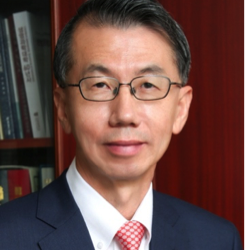
Gil-Sung Park is Professor of Sociology at Korea University, where he was also Provost and Dean of the Graduate School. He has authored or edited numerous books in the area of globalization, economic sociology, social innovation, business ethics, and political economy. His most recent research projects are on integrated contagion studies, on creativity in popular culture and on future of community.
 Hang Young Lee
Hang Young Lee

Hang Young Lee is Lecturer of Sociology at Macquarie University. His research areas span social inequality, social stratification, economic sociology, social networks, and quantitative research methods. His research has centered on illuminating social processes that facilitate or constrain the social mobility of individuals, more precisely the mechanism of cumulative advantage/disadvantage whereby the advantaged remain privileged, and the disadvantaged remain underprivileged. His recent publications have appeared in Research in Social Stratification and Mobility, Social Currents, and Journal of European Social Policy.
 Eun Kyong Shin
Eun Kyong Shin

Eun Kyong Shin is an assistant professor in the department of sociology at Korea University. As a social scientist with a PhD in Sociology, and who additionally trained as a postdoc at the Columbia Law School and the UT Medical School, her investigations weave through multiple disciplines. Bringing unconventional data sources to advanced computational methods, her overarching goal is to gain better understanding of how relational networks and social conditions influence human connectivity and cognitive development.
This mini-conference aims to explore the new challenges in diffusion of innovations introduced by revolutionary transformation in data, technology and computation.
In the New world of automated data collection and advanced computation, massive amounts of dynamic data have accumulated exponentially. Big data (high-volume, high-velocity and/or high-variety information assets) and well-trained algorithms can have strong incentives for diffusion of innovation: high performance, expanded reach, increased visibility. Yet, accumulating large quantities of data and advanced computation rarely, if not ever, automatically solve the problems we face. In the era of Big data, what are the newly introduced challenges with the recently transformed scene? How desirable diffusion of (broadly defined) innovation, is achieved in the era of new and big data?
In this digitized social world, the landscape for diffusion of the new — new types of social behaviors and innovations– is neither flat nor plain. Whether it is a new health practice or a novel data collection tech, it has to travel upon the new digitized territory. New algorithmic contour has introduced unseen types of barriers for efficient diffusion of innovations: Digital blind spot, algorithmic affirmation and discrimination, unfiltered bias, and robot produced data.
The mini-conference will discuss the most pressing challenges in diffusion of the new (innovations) in the Newworld and strategies to avoid hidden pitfalls on the algorithmic horizon.Drawing on a range of methods including social network analysis, machine learning, and big data analysis, we seek to contextualize the Newchallenged in diffusion, such as digital innovation diffusion, information circulation networks, showing the complexity of diffusion of the Innovations on the new algorithmic contour.
We welcome contributions presenting empirical evidence or exploring theoretical considerations about the following issues:
- Diffusion Networks: Information and resources travel through links. The very network of resource distribution contributes how resources are accumulated and redistributed. How the digital contours affect the diffusion process?
- On and Off: How to link on-line diffusions and off-line diffusions? Are the digitized diffusive patterns similar to those of off-line diffusions? If not, how to make an inference from digital diffusion for off-digit space?
- Target Specific Diffusion: As the scope of direction of diffusion has widely expanded, the main challenge of diffusion of innovations on the new algorithmic contour is not just how far they reach, but how appropriately they reach to the relevant adaptors. How shall the diffusion path be deigned to maximize the efficiency while minimizing useless digital debris?
Education Policies and Practices for Social Progress in Globalizing Worlds: Are New Socio-Economic Perspectives Needed?
detailed info Lorenz Lassnigg
Lorenz Lassnigg

Lorenz Lassnigg is senior researcher at the Institute for Advanced Studies (IHS) in Vienna, research group in Equality and Education. Has gained experience in projects in Minas Gerais, Brazil and Macedonia, as well as with the OECD (governing complex education systems), the ILO (social dialogue), the ETF (anticipation), and in several activities with EU-policies and in Austria (qualifications framework, monitoring lifelong learning strategy). Teaching activities at Austrian universities and polytechnics, at the Universitat Autònoma de Barcelona Tampere University, Finland. Contributed to the education chapter in the Report of the of the International Panel on Social Progress (IPSP) “Rethinking Society for the 21st Century”; contributions: ‘Ausbildungsberufe’ – a necessary and complex ingredient of the ‘Dual’ apprenticeship frameworks (2019, Urban Education in Austria: (2017), Competence-based education and educational effectiveness (2015) “Lost in Translation”: Learning outcomes and the governance of education (2012). https://www.researchgate.net/profile/Lorenz_Lassnigg/research
 Aaron Benavot
Aaron Benavot
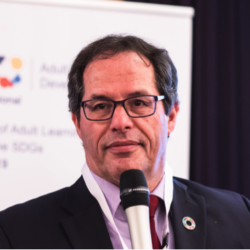
Aaron Benavot is Professor of Global Education Policy in the School of Educationat the University at Albany-SUNY with interests in comparative education researchand international education policies. In 2018 he served as a Fulbright Specialist in Viet Nam and in 2019 as a High-Level Expert in lifelong learning at the East China Normal University in Shanghai, China. During 2014-2017 Aaron was Director of UNESCO’s Global Education Monitoring Report, an independent, evidence-based annual report, which analyzes progress towards international education targets in the 2030 Agenda for Sustainable Development. He recently co-led a 10 country study exploring the mainstreaming of education for global citizenship and sustainable development in policies and curricula (UNESCO, forthcoming).Aaron has co-authored or co-edited six books: School Knowledge for the Masses(with Meyer and Kamens); Law and the Shaping of Public Education(Tyack and James); Global Educational Expansion(Resnik and Corrales); School Knowledge in Comparative and Historical Perspective(Braslavsky); PISA, Power, and Policy(with H-D Meyer). He is also a co-convener of NISSEM(nissem.org), which recently published a specialvolume entitled: NISSEM Global Briefs: Educating for the social, the emotional and the sustainable.
 Stephanie Matseleng Allais
Stephanie Matseleng Allais

Stephanie Matseleng Allais is Research Chair of Skills Development and Professor of Education at the Centre for Researching Education and Labour at Wits University. Her research is located in the sociology and political economy of education, focused on relationships between education and work. She was a fellow at the Centre for Educational Sociology at the University of Edinburgh, and before this managed and conducted research into qualifications frameworks in 16 countries for the International Labour Organization. She has worked in government, distance education, trade union education, teaching high school, teaching adult basic education and training, and leading a student organization. She served on many committees by appointment of Ministers of Education in South Africa, and has been involved in numerous policy processes.
 Justin J.W. Powell
Justin J.W. Powell

Justin J.W. Powell is Professor of Sociology of Education in the Institute of Education & Society at the University of Luxembourg. His comparative institutional analyses of educational systems chart persistence and change in special and inclusive education, in vocational training and higher education, and in science and research policy. His research—bridging sociology, political science, and education—has been widely published in English and German and received numerous international awards. Recent books include Barriers to Inclusion (Routledge, 2011/2016), Comparing Special Education: Origins to Contemporary Paradoxes (Stanford UP, 2011), The Century of Science: The Global Triumph of the Research University (Emerald, 2017/2019), and European Educational Research (Re)Constructed: Institutional Change in Germany, the United Kingdom, Norway and the European Union (Oxford: Symposium Books, 2018). In 2017, he co-founded the Luxembourg Educational Research Association (LuxERA).
Socio-economic perspectives on education policy are important in development models. However, social science disciplines tend to compete rather than collaborate in their analysis of education. The purpose of the mini-conference is to engage and juxtapose different disciplinary perspectives on these issues, taking the IPSP (www.ipsp.org) Report as a starting point (Rethinking Society for the 21st Century. Report of the International Panel on Social Progress. Vol.I-III, Cambridge University Press).
The following topics/questions should be addressed:
How should education policy weigh the links between economic, political, social, and cultural purposes, and what alternatives to instrumental understandings of education policy exist? Economic claims deeply influence dominant instrumental thinking in education policy making, at times mobilized by authoritarian/oppressive regimes. How have policies and evidence promoted by the Global Education Reform Movement (GERM) impacted understandings of progress, and what movements have emerged to oppose these? Which purposes and values in education policy do key actors emphasize? How are education sectors (mass general, vocational, higher, and adult education) related to different purposes? To what extent can inclusive education replace special education in exclusionary systems with segregated settings and focus on educational disadvantage? Is quality education possible while education is part of a palliative approach to development which addresses symptoms rather than causes of under-development?
How and with what consequences might globalization and digitalization contribute to disrupting educational structures? Because formal education is still a national topic, processes of policy learning and transfer beyond the national level are often invisible. Digitalization and the emergence of private education multinationals create new transnational spaces that circumscribe state power. What evidence do we have of how these phenomena impact national (policy) development and of differences for countries in the Global North and Global South? How are meanings of development enacted in the international flows of educational services? How are global policy platforms and instruments (e.g., SDGs) influencing development models with respect to education?
What is the role of lifelong learning and of informal learning and contextual factors in understanding education policy? In practice, the focus in lifelong learning is still predominantly on formal and non-formal education rather than supporting informal learning and learner friendly environments. Most policies are still focused on formal education. How can informal learning be analyzed und supported, and how does it interact with formal education? How can contextual factors be integrated into education policies? How are informal learning and the informal economy inter-related, and will these relations change due to digitalization? What kinds of lifelong learning approaches and practices are different countries establishing and supporting?
How is education policy influenced by disciplinary understandings of education, and how might multi and trans-disciplinarity and challenges to technocratic understandings contribute to progress? (IPSP Report Ch22) How can multi-disciplinary and socio-economic perspectives enrich disciplinary understandings? To what extent does the proliferation of international standardized data (e.g., PISA, PIAAC) facilitate meaningful comparisons across regions/countries rather than reinforce technocratic understandings of education? How is research related to the various actors, such as educators, associations, and broader constellations in education policy making?
Gender and Wealth Accumulation
detailed info Céline Bessière
Céline Bessière

A Professor of sociology at Paris-Dauphine University (PSL University, IRISSO), Céline Bessière studies the material, economic and legal dimensions of family. Her last book, The Gender of Capital. How Families Perpetuate Wealth Inequality) (in French, La Découverte, 2020; forthcoming in English, under contract at Harvard University Press) co-authored with Sibylle Gollac, explores family wealth arrangements, in particular through the analysis of inheritance and conjugal breakdown. She published a paper in Socio-Economic Review (available ahead of print) on the gender wealth gap in France: she describes how legal professionals and families contribute to the widening, legitimation and concealment of the gender wealth gap.
She is also the author of a book on how Cognac winegrowing family businesses are handed down from one generation to the next (De génération en génération, Paris : Raisons d’Agir 2010) and the co-author of a book drawing on a vast research on family courts in France (Collectif Onze, Au tribunal des couples, Paris: Odile Jacob, 2013).
Her research is at the crossroads of several fields: sociology of law and justice, sociology of gender and family, and economic sociology.
Photo © Juliette Fradin
 Maude Pugliese
Maude Pugliese

Maude Pugliese is an Assistant Professor of Population Studies at the Institut national de recherche scientifique (INRS), based in Montréal, Canada. Her work explores how individuals and households mix family support and financial products, both credit and saving vehicles, to build private safety nets, using both survey research and comparative historical methods. In previous works, she has examined how the primary residence came to be the mass wealth building vehicle in the US context. Her current work explores how marital status and the structure of kinship networks shape indebtedness and retirement savings in the Canadian, US and European contexts. Before joining INRS, she was a postdoctoral fellow at McGill University and received her PhD from the University of Chicago.
Photo © INRS
Wealth inequality is on the rise both within countries and at the global level—it has now reached levels unseen since the first decades of the 20th century. While research on the causes and consequences of this phenomenon is quickly developing, few studies have explored how gender intersects with wealth inequality. Existing scholarship focuses primarily on labor-related incomes; until recently, it has dedicated comparatively little attention to the question of gender disparities in the process of wealth accumulation. This mini-conference aims to bring together scholars who study how gender may shape the reproduction/intensification of wealth concentration in different national contexts.
We are especially interested in papers addressing the following issues using a variety of methodological approaches, from ethnographic research to statistical analyses.
- Historically, legal discrimination has prevented women from accumulating wealth all over the world. Nowadays, in Western legal traditions (common law and Civil code territories) property laws are formally equal. This is not the case in countries where religious or customary traditions explicitly favor male property rights. In these different national contexts, we welcome papers that study the political and legal framing of male and female accumulation, as well as the role of legal and wealth professionals (lawyers, judges, notaries, wealth managers, bankers, …) in the extension/reduction of the gap.
- The gender wealth gap is poorly documented because surveys around the world tend to collect wealth data only at the household level. This strategy obscures gender wealth inequality located within couples, and it sometimes even leads to the assumption that couples share and equalize wealth across partners. That assumption may have been adequate fifty years ago, when most couples were married for life. Since then, however, a growing number of couples have adopted cohabitation over marriage and even those who are married can now opt for matrimonial property regimes without obligations to redistribute wealth after divorce. In this new context, how do spouses and partners manage their wealth? How do they distribute it in the event of marital breakdown or death?
- A few countries have recently begun to collect individual-level wealth data. What does this evidence say about gender wealth gaps, especially within households; how large are those gaps and how do they change across countries, depending on class, race, age, and between generations? More importantly, how can they be explained? Are gender wealth gaps entirely due to wage inequality between men and women or do other factors also play a role? For example, are receipts of intergenerational transfers unequal across gender?
How does gender influence the reproduction/intensification of wealth inequalities? While men remain wealthier than women, on average, a number of women have now joined the ranks of the national and global wealth elites. Are there differences in the strategies men and women deploy to protect their wealth, pass it on to their children, and create family dynasties?
Global Populism and Business Elites
detailed info Magnus Feldmann
Magnus Feldmann

Magnus Feldmann is a Senior Lecturer in Politics in the School of Sociology, Politics and International Studies at the University of Bristol. He has a PhD from Harvard University, where he was a doctoral research associate at the Weatherhead Center for International Affairs, the Center for European Studies and the Davis Center for Russian and Eurasian Studies. He has been a visiting fellow at the University of Uppsala and the Estonian Business School. His research interests relate to various topics in political economy, notably institutions, varieties of capitalism and the politics of business and labour. His articles have appeared in a wide range of journals, including World Politics, Comparative Political Studies, Government and Opposition, European Journal of Industrial Relations, East European Politics and Post-Soviet Affairs. His book on Varieties of Capitalism: A Global Perspective is under contract with Palgrave Macmillan. He was recently appointed to the editorial board of the journal Post-Communist Economies.
 Marcus Gomes
Marcus Gomes

Marcus Gomes is a lecturer at Cardiff Business School at Cardiff University, UK. He has previously worked at Exeter Business School (UK) and FGV-EAESP (Brazil). He has a PhD from FGV-EAESP, where he was a senior research fellow at the Public Management and Government Research Centre (FGV-CEAPG). He is an alumnus from the GW4 Crucible 2018 Programme for Future Research Leaders on Resilience, Environment, and Sustainability. His research focuses on how organizations influence their context through discourses and meanings. Under this perspective, Marcus researches the governance of sustainability, focusing on negotiation and contestations between civil society, corporations and the state, examining how business elites and populism has been shaping these relationships. He is associate editor of a RAE – a leading Latin American journal. His research has been published at a wide range of journals, including leading Latin American journals – where he started his career –, such as Organizations, Research in Sociology of Organizations, Revista de Adminsitração Publica (RAP), Revista de Administração Contemporânea (RAC), Revista de Adminsitração de Empresas (RAE).
 Daniel Kinderman
Daniel Kinderman
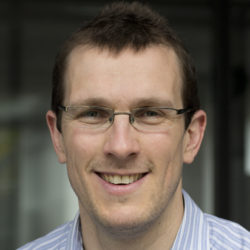
Daniel Kinderman is an Associate Professor in the Department of Political Science & International Relations and Director of European Studies at the University of Delaware. He is a political economist who focuses on the dynamics between business, politics/institutions, and societies across the world. Kinderman’s research interests are situated at the intersection of political science, business/management, and sociology. He is particularly interested in the role(s) of business in society, ranging from prosocial behavior in the form of CSR / responsible business to aggressive interest group advocacy.
A central question in much of his current and recent research projects is, “When do business people engage in Faustian pacts with autocrats, and under what circumstances are they willing to take a stand to defend democracy?” These projects address MNC political risk and uncertainty under right-wing populist governments, the impact of responsible business organizations on the CO2 emissions of their member companies, American business responses to Black Lives Matter, corporate human rights violations in South Sudan, Donald Trump and the revolving door between business and politics in the United States, business advocacy in the run up to Brexit and in Swiss referendums, and business responses to authoritarian populism and the crisis of democracy in various countries across the world.
Kinderman’s articles have appeared in Socio-Economic Review, Journal of International Business Policy, Politics & Society, Regulation & Governance, Journal of Common Market Studies, Business & Society, Policy and Society, Theory and Society, Business and Politics, Journal of Business Ethics, Review of International Political Economy, and other journals. He is co-founder and co-chair of the research network “Business and Society” at the Council for European Studies. He was a postdoctoral research fellow at the New School for Social Research as well as a visiting scholar at the Berlin Social Science Center (WZB) and at the Max Planck Institute for the Study of Societies (MPIfG). He grew up in British Columbia, Canada and received his Ph.D. from the Government Department at Cornell University.
 Glenn Morgan
Glenn Morgan

Glenn Morgan is Professor of Management in the School of Economics, Finance and Management, University of Bristol, UK. He has previously worked at Manchester Business School, Warwick Business School and Cardiff Business School. He has been a visiting professor at Copenhagen Business School and a number of other institutions in Europe and North America. He was President of SASE in 2014-15. His research interests lie in the areas of globalisation, financialization, institutions, multinationals, regulation and elites. As well as studies in Europe, he has written on East Asian and Latin American forms of capitalism. He has published in a wide range of journals including Organisation Studies, Human Relations, Economy and Society, Socio-Economic Review, Industrial Relations, Journal of European Public Policy. He was editor of the Journal Organization from 2005-2008 and serves on a number of editorial boards. Recent jointly edited collections Research in the Sociology of Organizations Vol.43 Elites on Trial (Emerald Publishing 2015), The Oxford Handbook of Sociology, Social Theory and Organisation Studies (Oxford UP 2014), New Spirits of Capitalism? Crises, Justifications and Dynamics (Oxford UP 2013) and Capitalisms and Capitalism in the Twenty-First Century (Oxford UP 2012).
 Dorottya Sallai
Dorottya Sallai

Dorottya Sallai is an Assistant Professorial Lecturer in the Department of Management at the London School of Economics and Political Science (LSE). She completed her doctoral research in Management and Public Policy at King’s College London. Her study on the Europeanization of corporate lobbying in the enlarged European Union has been published in the Journal of Common Market Studies. Her subsequent work investigates state-firm relations, corporate political activity, and multinational companies’ political strategies in emerging market contexts. Currently she is interested in how the growing role of the state affects businesses, especially the impacts of uncertainty, populism and authoritarian regimes on multinational and domestic firm strategies. Before joining LSE, she worked as a Senior Lecturer and Programme Leader of the BA (Hons) Business with Law and the BA (Hons) International Business programmes at the University of Greenwich. She is the Founding Chair of SASE’s Women and Gender Forum.
As the neo-liberal order weakened under the impact of the Global financial crash and the following period of austerity, countries in the global North have been swept by the rise of populist movements, pitting the ‘people’ against the ‘elites’ and challenging many of the shibboleths of neo-liberalism such as free trade, labour migration, FDI and the relocation of production and the independence of central banks. Key institutions that underpinned the liberal democratic framework such as an independent judiciary, a free press, the separation of powers, a neutral civil service, a dynamic and uncensored university sector have been attacked by populists fronting old and new parties. They have built on previous political failures by traditional elites to present a new approach to politics and economics resting on nationalism, protectionism and an antipathy to neo-liberal international governance institutions. In the Global South, leaders such as Bolsonaro, Duterte, and Modi have come to power using a similar populist discourse (though connected to the specifics of their own country’s institutional legacy including its specific legacy of populist ideas and movements). Efforts to link organizationally and ideologically populist movements have been labelled ‘global populism’.
This mini-conference explores the role and behavior of business in the era of global populism. The political framework has shifted from neoliberalism in which business elites enjoyed an influential position on policy-making. Most populist movements define the elite as ‘the enemy of the people’ and large businesses are implicitly included in this framing. Whilst this may conceal the continued ability of business to influence populist governments in their favour, it makes for a more complex and challenging political environment for business as the cases of Trump in the USA and Brexit in the UK illustrate. In this mini-conference, we therefore invite contributions that examine the varied interactions of populist politics, economic policies and business elites in both the Global North and the Global South. Possible themes include;
- Interactions between populist politics and business elites in particular countries of groups of countries – clashes , conflicts and compromises.
- The role of certain business groups in diffusing populist politics nationally and internationally and their purposes and goals in doing so.
- The interaction between populism, business and economic policy in areas such as migration, trade policy, taxation, trade unions, central bank independence
- The attack by populists on international cooperation over issues such as financial regulation, climate change and environmental protection.
- The attack by populists on a expertise, a free press, parliamentary institutions and an independent judiciary. Does this matter to business?
- How have business responded to populist anti-feminist rhetoric and anti-diversity policies in employment?
- How do populist politics impact on development, accumulation, surveillance and redistribution?
- In what ways does global populism affect state-firm relations and firm-level strategies?
- How is increasing populism affect international business strategies and corporate governance in a global context?
- How have business associations responded to populism? What circumstances have prompted business associations to initiate campaigns, public protests, or lobbying against populists?
Green Economy Contradictions
detailed info Stéphanie Barral
Stéphanie Barral

Stéphanie Barral is a sociologist at the French National Institute for Agronomic and Environmental Research, with expertise in economic sociology and political sociology. Her work focuses on the contemporary transformation of environmental and agricultural policies. Her first book (Capitalismes Agraires, Presses de Sciences Po, 2015) analyzes the hegemonic development of capitalist palm oil plantations in South East Asia against social and environmental criticism. Her on-going research deals with carbon and biodiversity offsets as well as payments for environmental services in France and in the USA, in particular as they highlight trade-offs between scientific knowledge, economic constraints and institutional normativity and as they constitute a trend of agricultural policies privatization.
 Patrick Bigger
Patrick Bigger

Patrick Bigger is an economic geographer at the Lancaster Environment Centre (UK) exploring how nature is made investable and to what ends. His work on financial-environmental entanglements spans settings, types of investment, and market structure from California’s cap-and-trade carbon market to the global green bonds market to for-profit biodiversity entrepreneurs in Kenya to World Bank green infrastructure finance. His other research project deals with the political economy and ecology of the US military, which has been covered extensively in the global press. His work appears in journals such as Transactions of the Institute of British Geographers, Environment and Planning: E: Nature and Space, and The Journal of Environmental Investing.
 Ritwick Ghosh
Ritwick Ghosh

Ritwick Ghosh is an Assistant Professor in Forestry and Environmental Resources at North Carolina State University. Ritwick studies and teaches environmental governance, with expertise in the role of markets in advancing sustainable land practices. Ritwick is a deeply interdisciplinary scholar and contributes to debates in ecological economics, sociology, and science and technology studies. His research has a global focus, with projects in India, the US, Europe, and Indonesia. Ritwick has held positions and fellowships at New York University, Arizona State University, and the University of Denver. Ritwick received his Masters and PhD from Cornell University.
From climate change to biodiversity loss, environmental crises have sparked an interest in the power of economic ideas in environmental and industrial policy. On one hand, scholars, politicians, and activists blame free-market capitalism for runaway pollution, emissions, deforestation, over-consumption, and inequality. On the other hand, market mechanisms have come to be seen by many policy makers and private sector actors the only viable option for coming to grips with environmental degradation. The reduction of environmental crises to problems of economic management has thus served to magnify the power of capital in public life. This contradiction lies at the heart of the Green Economy. Unpacking these contradictions necessitates working with new analytical ideas, across disciplines, and through comparative cases.
Examples of green economy approaches are plentiful. Market-based policy instruments such as carbon trading schemes illuminate this dynamic, as does the reframing markets in the language of environmentalism through financial products like green bonds, environmental impact investing, or voluntary reporting of financial exposure to environmental change. At the international level, programs such as REDD+ reflect the scalar enactment of economic and environmental logics, which then play out in vastly different ways locally, subnationally, and nationally. Given the increased financial, entrepreneurial, and market-governance activity to address a host of environmental and social issues, it merits asking how the contradictions play out both ‘in place’ and across the world. What narratives, activities, and trade-offs produce the green economy as it actually exists? What happens when ecological and financial concerns don’t align? To what extent has the economization of environmental policies led to processes of rent-capture, surveillance, or dispossession in their making? How are these processes being challenged? What resistance strategies or alternative propositions exist at a time when the hegemony of market-logics is being challenged in other spheres?
We invite panelists to think through how actors respond, justify, struggle, and negotiate new arrangements in a moment of green economy contradictions- and how these new arrangements produce new contradictions themselves. The mini-conference aims to energize a cross-disciplinary dialogue and bring them together under the frame of Green Economy Contradictions. The mini-conference welcomes papers that explore these issues empirically, in a wide range of geographical and institutional contexts and through diverse or novel conceptual frameworks.
Propositions may explore other dimensions of green economy, though preference may be given to proposals that align closely with the themes above.
- The role and types of expertise – scientific, economic, or political – foundational to the creation of green economy mechanisms or discourses, and how contradictions between different types of expertise are or are not resolved
- The centrality or absence of the state in the deployment of green economy initiatives and the state’s role in producing or mediating green economy contradictions
- Divergent accumulation strategies in the green economy- what types of contradictions are or are not present depending on the strategy to realize profit from environmentally beneficial projects or regulation?
Mind the Wealth Gap? Interdisciplinary Perspectives on the Accumulation, Justification and (Re)Distribution of Wealth
detailed info Hanna Lierse
Hanna Lierse
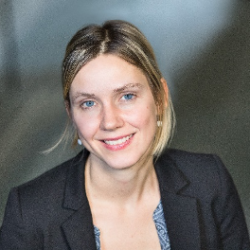
Hanna Lierse is a political economist at the Research Center on Inequality and Social Policy at the University of Bremen. Her main research interest pivots around the transforming role of states and how they intervene to address the market inequalities created by capitalist societies. She has published papers on the historical rise of the tax and the welfare state and on how contemporary challenges have shaped the redistributive capacity of the state. In one of her more recent projects she investigates the transition to green public finances, particularly green taxes and subsides. Although her main research area has been on the transformation of the state in Western Europe, she has also studied the role of the state in the Global South.
 Patrick Sachweh
Patrick Sachweh
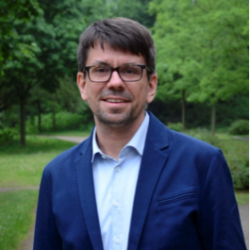
Patrick Sachweh is a Professor of Comparative Sociology at the University of Bremen, Germany, where he also obtained his PhD in 2009. In between, he was working at Goethe University Frankfurt, Germany, and the Max Planck Institute for the Study of Societies in Cologne, Germany. His research interests lie in the fields of social inequality, comparative welfare state research and methods of empirical social research (esp. mixed methods). Currently, he is working on value orientations and conflicts between different segments of the middle classes, and has recently completed a mixed-methods study on popular perceptions of social inequality and justice in Germany (funded by the German Research Foundation).
 Nora Waitkus
Nora Waitkus
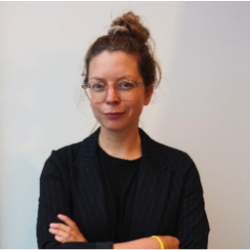
Nora Waitkus is a sociologist looking at inequality and socio-economic stratification in contemporary capitalist societies. She is mainly interested in exploring and explaining cross-national variation and institutional drivers of wealth inequality and concentration. Her work further deals with class position, wealth portfolios and wealth accumulation using quantitative approaches and longitudinal data. Nora is currently a Postdoc at London School of Economics (International Inequalities Institute) and has earned degrees from the University of Hamburg and the Free University of Berlin. Prior to joining LSE, she completed her Ph.D. at the University of Bremen and was a visiting fellow at the University of Michigan, Ann Arbor.
The unequal distribution of private wealth deeply concerns the public and academic debate. Over the last decades, the wealthy across the globe have made spectacular gains that lead to a growing concentration of capital at the top. Estimations suggest that since the 1980s, the wealth share of the top one percent increased from 25 percent to 40 percent in the world (Zucman 2019). Although a strong concentration of wealth has historically always been characteristic of capitalist societies, the recent resurgence in wealth inequality has not only deepened economic divides but also created an open-ended space for further social and political advantages. Against this backdrop, the academic debate on wealth inequality in the early 21st century has gained momentum resulting in a quickly developing field of interdisciplinary scholarship. This mini-conference aims to enhance the exchange among scholars different disciplines who study the dynamics of wealth and wealth inequality. We welcome theoretical as well as empirical contributions (both of quantitative and qualitative nature) from the Global North and South. To structure the debate, we invite papers that study wealth and wealth inequality from three analytically distinct, but empirically overlapping angles:
- First, we welcome contributions that address the analytical, theoretical or normative dimensions of wealth, its accumulation and its (re)distribution. While wealth inequality has received increased empirical scrutiny, little attention has been paid to its theoretical conceptualization. What differentiates wealth from other dimensions of socio-economic advantages? Are some components of wealth considered more legitimate than others? Are there limits to private wealth accumulation or certain levels which are perceived as unjust?
- Second, we are interested in papers describing and explaining empirical patterns of wealth accumulation and distribution. From this perspective, we ask for instance: which societal groups have benefitted from wealth gains and which ones are falling behind? How does wealth inequality differ cross-nationally and to what extent are these differences related to varying economic, political, institutional and cultural conditions?
- Third, we invite contributions that address the political dimension of wealth inequality and redistribution. How do states seek to influence the concentration of wealth at the top? How can we explain the recent abolishment of many wealth taxes such as net wealth and inheritance taxes? What is the role of different socio-economic contexts, organized actors such as economic elites, or changing policy ideas on wealth-related policies?
Possible Worlds: Practice, Ethics, Hope and Distress
detailed info Felipe González López
Felipe González López

Felipe González-López is associate professor at the Universidad Central de Chile, where he leads since 2020 the Max Planck Partner Group for the Study of the Economy and the Public. He got his PhD in Sociology from the Max Plank Institute for the Study of Societies, in Cologne, where he researched the financialization of households. During his postdoctoral research funded by the National Council of Science and Technology in Chile, he investigated the conditions that lead to the politicization of debt and the rise of social movements of debtors. His most current area of research bridges economic sociology to communication studies, in order to understand the way in which both conventional and social media contribute to the formation of economic expectations in the public sphere.
 Gary Herrigel
Gary Herrigel

 Adriana Mica
Adriana Mica
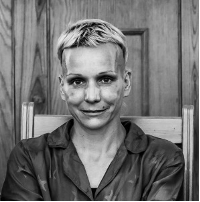
Adriana Mica is Assistant Professor and head of the Research Unit on Action and Consequences at the Institute of Social Prevention and Resocialisation, University of Warsaw. Her research interests include sociology of possibility and ignorance, critical failure studies, theory of randomness, unintended consequences, and crisis management. She is the co-author of Ignorance and Change: Anticipatory Knowledge and the European Union Crisis (Routledge, 2021) and author of Sociology as Analysis of the Unintended: From the Problem of Ignorance to the Discovery of the Possible (Routledge, 2018). She is currently working on a co-authored book – The Imaginary of Failure: Coming to Terms with Contingency and Inequality in Policymaking (with Mikołaj Pawlak and Paweł Kubicki). As well as co-editing Routledge International Handbook of Failure: Critical Perspectives from Sociology and other Social Sciences (with Anna Horolets, Mikołaj Pawlak, and Paweł Kubicki, Routledge, forthcoming).
 Ann Mische
Ann Mische

Social action, entrepreneurship and decision-making are increasingly depicted as taking place in a context of possibility, alternatives, and opportunities waiting to be revealed.
Attention to the expansion of the spectrum of what is possible helps to advance alternative economic activities (sharing or cooperative economies), nonconventional entrepreneurship, original forms of adaptation, social and technological innovations, social movements, and even new types of governance infused with hope. Hence, exploring both the generation of the possible as well as efforts to engage in experimentation can be a tool to reduce or, at least, challenge social inequalities. At the same time, however, visions of the possible can generate disappointment regarding less advantageous or unexpected developments. These might include, for instance, claims regarding the failure to anticipate episodes of crisis (financial, migratory etc.) or inaction in responding to crises (ecological etc.). These developments infuse the exploration and transformation of the possible with urgency, pressing policymakers, scientists and citizens to imagine alternative scenarios and push the boundaries of what people consider to be plausible and desirable futures.
The exploration of possibility can also generate cynicism regarding futile utopianism or ‘voluntarism”. Further, some preoccupations with possibility can also lead to the reification of future scenarios, and to subsequent fatigue and (ironically) to pessimism about the future. Examples include the reification of “dark” futures in relation to economic downturns, limits to growth and resources, health and environmental risks, or the “invasion of migrants” in Europe. On the one hand, there is something intrinsic and unavoidable in this: the “possible” always remains in an indefinite future and projections forward reflect contemporary power alignments and sensibilities. On the other hand, these dangers underscore the stakes in examining the possibilities for destabilization and possibility creation: by embracing uncertainty in the present, exploration of the possible can become part of political struggle. This highlights problems of perspective, inclusion and power in ways that help identify potential for destabilization. Reification occurs via the voicing of certitude that certain risks or possibilities will materialize, without preliminary discussion of the extent to which possible worlds are in fact probable. Cynicism arises when possibilities have little substance or are too willfully detached or contentious regarding relations in the present. The study of possibility is thus extremely hazardous and easily undermined or rendered inconsequential. The generation of credible possibility is genuinely difficult as a social, political and theoretical problem. It nearly always involves destabilization in both ideas and practices.
This mini-conference aims to explore the ways in which the generation and exploration of possibility, as a social process, affects and informs developmental currents across domains in the contemporary world. We will discuss how it enables or blocks individual and collective action; how it contributes to political struggles; how it provides templates for social policy; and how it re-arranges temporalities across social fields. We will also consider the conditions that lead to the exhaustion of possible futures. Finally, we will discuss the most suitable sociological theories and research methods that scholars can use to investigate possible worlds.
Regulation, Innovation, and Valuation in Markets for Health and Medicines
detailed info Kathryn Ibata-Arens
Kathryn Ibata-Arens

Kathryn Ibata-Arens is Vincent de Paul Professor of Political Economy, DePaul University. A scholar of innovation and entrepreneurship, science and technology policy, and economic development, her award-winning 2021 book Pandemic Medicine: Why the Global Innovation System is Broken and How We Can Fix It analyzes international competition in new drug discovery and access to essential medicines. Ibata-Arens is also researching the moral economy of patents over living matter, particularly that taken from indigenous communities. Her 2019 book Beyond Technonationalism: Biomedical Innovation and Entrepreneurship in Asia uses the lens of venture start-up firms in China, India, Japan, and Singapore, finding a new “networked techno-nationalism” guiding national policy and firm-level strategy supporting competitive growth in frontier technologies. In her journal articles, blogs, policy briefings, podcasts, and books, Ibata-Arens employs such methods as historical-institutional, policy and social network analysis, and original fieldwork-based case studies, contextualized within global politics and markets.
 Etienne Nouguez
Etienne Nouguez

Etienne Nouguez is a CNRS researcher at the Center for the Sociology of Organizations (CNRS – Sciences Po Paris). At the crossroads of economic sociology and health sociology, his research focuses on health markets. These markets are approached as complex social organizations combining regulatory agencies, experts, pharmaceutical companies, health professionals and consumers. But they are also analyzed as spaces for valuation in which plural and potentially contradictory conceptions of the value of these products are articulated. After a PhD dissertation on the French markets for generic medicines, he studied the politics of medicines prices setting in France. His current research focuses on how European markets are formed for boundary products between food and drugs, with a particular focus on probiotics. He is also involved in a collective research on the management of the Covid-19 pandemic by local public health authorities and infrastructures. Combining qualitative and quantitative approaches, these researches shed light on the different processes linking health, political and market values.
The world is experiencing rapid transformations in the development of new approaches to improving human health and the health of communities, healthcare provision, governance over the use and pricing of drugs and medicines, and medical innovations in biotechnology (genomics and stem cell-based therapies). For example, open innovation systems and sharing in the commons have introduced healing medicines and medical innovations (e.g. the Human Genome Project). At the same time, there is growing inequality in who gets access to medical care and medicines, and at what price.
Meanwhile, market competition has in part led to the opioid crisis of addiction in the United States, human subjects abuses in developing countries in the race to develop new drugs, and a decline in the discovery of radical new innovations in medicines for poor populations. This mini-conference aims to convene a group of related panels around issues in global health and medicines, to facilitate useful critical discussion and reflection on participants’ works-in-progress. Driving questions include:
- What theoretical advances are being made in understanding causal mechanisms in improving, or undermining human health and community health, for example, through state policy and firm and organizational strategy? What new frameworks and methods are being developed to identify key actors and explain actions (e.g. improving, or undermining health, broadly defined)?
- What is the evolving role of the state, healthcare systems and professions, and other actors (multilateral bodies, firms, non-profit organizations) in medical and medicine provision and innovation? Are we seeing a shift from traditional dominant blocks (North America and Europe) to new actors (Asia and the Global South)? Likewise, how have states and healthcare organizations been effective (or ineffective, indifferent) in the valuation and pricing of medicines (fair, equitable, and affordable access to life saving medicines)?
- What should be the responsibility, if any, of the global intellectual property rights regime as arbitrated by such powerful organizations as the World Trade Organization and global corporations in monitoring access and benefit sharing of profits resulting from research and development into new drugs and medicines?
- What are the roles for regulation and institutionalization of markets for such boundary-products between medicine and health food as probiotics, herbals, so-called nutraceuticals, and other dietary supplements – in ensuring the health and safety of consumers and patients?
- In what way is current research and policy aiming for “inclusive” innovation (e.g. in healthcare provision, new drug discovery) focused on distributive aspects versus stakeholder inclusion, or both (e.g. under the United Nations Sustainable Development Goals (SDGs))? What is the relative role for (social) entrepreneurs, large firms, and other actors?
Our mini-conference encourages submissions of papers exploring emerging frameworks and theories, as well as empirically rich original data from the developed and developing world and at various levels of analysis (e.g. local community, firm, state, multilateral institution). Scholars at all levels are welcome. In the spirit of innovation and creativity, the panels will have an interactive workshop format around discussant feedback and moderated audience participation. For more information, contact the co-organizers at medhealthSASE2020@gmail.com.
State Capitalism and State-led Development in the 21st Century: China and Beyond
detailed info Ilias Alami
Ilias Alami
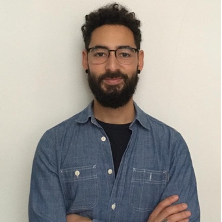
Ilias Alami is a political economist. He currently holds a postdoctoral researcher position at Maastricht University, where he works on the ERC-funded SWFsEUROPE project. His research and teaching interests are in the areas of global political economy, state capitalism, racial capitalism, money and finance, North-South relations, theories of the state, and the articulations between race/class/coloniality. Some of his recent work has been published in New Political Economy, Review of African Political Economy, Review of Radical Political Economics, Geoforum, Development and Change, Human Geography, Competition and Change, and Political Geography. His new book, Money Power and Financial Capital in Emerging Markets (2019 Routledge) has been shortlisted for the 2020 British International Studies Association best book in International Political Economy award.
He tweets at @IliasAlami
 Milan Babic
Milan Babic

Milan Babic is Associate Professor in Political Economy at the Political Science Department at the University of Amsterdam and PI of the DECARB project. His work deals with the transformations of the global political economy towards a geoeconomic global order; the political economy of decarbonization; and state-led investment. His latest book is The Rise of State Capital (Agenda 2023).
 Adam Dixon
Adam Dixon
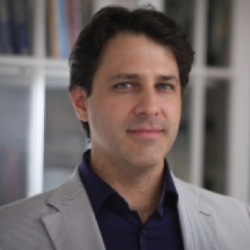
Adam Dixon is Associate Professor of Globalization and Development at Maastricht University in the Netherlands. He is the Principal Investigator of the research project Legitimacy, Financialization, and Varieties of Capitalism: Understanding Sovereign Wealth Funds in Europe (SWFsEUROPE) a five-year (2018-2022) funded by the European Research Council. His research focuses on globalization, development, state capitalism, and the political economy of sovereign wealth funds. He is the author of The New Frontier Investors: How Pension Funds, Sovereign Funds, and Endowments are Changing the Business of Investment Management and Long-Term Investing (Palgrave Macmillan 2016), The New Geography of Capitalism: Firms, Finance, and Society (Oxford University Press 2014) and Sovereign Wealth Funds: Legitimacy, Governance, and Global Power (Princeton University Press, 2013).
 Nana de Graaff
Nana de Graaff

Nana de Graaff is Associate Professor in International Relations at the Department of Political Science and Public Administration at Vrije Universiteit Amsterdam. Her main research interests are within International Relations, International Political Economy and Elite Studies (political sociology). Her particular research fields are Chinese political and economic elites, the globalization of Chinese firms and Chinese engagements with Europe; American political and economic elites and US foreign policy, US-China relations, and the politics and political economy of oil. She publishes in leading journals in International Relations, International Political Economy, and Sociology (e.g. Review of International Political Economy, European Journal of International Relations, International Affairs, Global Networks) and with publishers like Routledge and Cambridge University Press.
Nana De Graaff is currently Chair of the EU COST Action 18215 China in Europe Research Network (CHERN), a Europe-wide network aimed at pooling, exchanging, disseminating and generating research on Chinese socio-economic engagements with Europe. She is also co-Principal Investigator in an ESRC (UK) funded project Fraying Ties? Networks, Territory and Transformation in the UK oil sector, an interdisciplinary research project led by Prof. Gavin Bridge (Durham University) in collaboration with London School of Economic (LSE) and Platform. She is co-investigator in the Corporate Mapping Project, a SSHRC funded research-project aimed at systematically mapping the structure and influence of the fossil fuel industry in Canada led by Prof. William Carroll (University of Victoria). De Graaff is an advisory board member for International Affairs and The International Spectator.
The crisis of the liberal world order has called into question its underlying (neo)liberal and coordinated economic models. So-called “state capitalist” economies and development strategies are projecting alternative pathways across the globe. The rise of those alternatives is, however, not simply a return to atavistic statist development tools and policies. The new statist practices are global in nature: research on networked corporate elites, ownership and investment ties and capital flows shows that state capitalism is more transnationally integrated than ever before.
The aim of this mini-conference is to synthesize and advance this burgeoning research agenda. The new ways in which “state capitalism” works warrants new theoretical, methodological, and conceptual approaches in order to understand the dynamics shaping this rise. We focus on two elements of this research agenda. One is the analysis of new configurations, practices and varieties of state capitalism and its tools. The other is the case of China as the global spearhead for state-led development models.
Thematic overview
The first stream looks at the various ways state capitalist practices and development models have recently emerged within the global economy. This stream tries to identify characteristics of a new, global form of statism that is different from previous waves of “state capitalism”. Expected contributions could address the following items of the research agenda:
- How to explain the more visible role of the state in capital accumulation?
- What is the (theoretical, conceptual, empirical) nature of the new state capitalism?
- What are the institutional and geographical configurations and varieties of the new state capitalism?
- New tools of state capitalism? The global role of SOEs, SWFs and others.
- State power through state capitalism? The re-discovery of state power in times of globalization.
The second stream dives into China as the most relevant empirical example of a renewed state capitalist development model. China spearheads many of the globalizing institutional and corporate forms that shape the renewed mode of state-led capitalist expansion such as cross-border firm takeovers, development banks (e.g. the AIIB), or the Belt and Road Initiative (BRI). Contributions to this stream can, among others, address the following themes:
- The role, implications, and contradictions of “Sino-Capitalism” in a global context.
- The socio-economic and (geo)political implications of cross-border Chinese investments as well as the responses by host countries around the world.
- US-China relations, from trade war to industrial policy war and the quest for technological dominance.
- Chinese challenges to the liberal international order: the role of the renminbi, the BRI, the AIIB, Made in China 2025 and other statist initiatives and tools.
- “Statist” Chinese elites and transnational corporations: integrating into or challenging transnational elite and corporate networks?
The mini-conference hence addresses the topics of alternative paths of development and the question of a redistribution of prosperity, power and identities in a world economy at a time of global fragility and change. Scholars from different disciplines, approaches and backgrounds are invited to explore the rise of state capitalism and statist development models, and their consequences in all areas of socio-economics.
The Political Economy of Financial Subordination
detailed info Ilias Alami
Ilias Alami

Ilias Alami is a political economist. He currently holds a postdoctoral researcher position at Maastricht University, where he works on the ERC-funded SWFsEUROPE project. His research and teaching interests are in the areas of global political economy, state capitalism, racial capitalism, money and finance, North-South relations, theories of the state, and the articulations between race/class/coloniality. Some of his recent work has been published in New Political Economy, Review of African Political Economy, Review of Radical Political Economics, Geoforum, Development and Change, Human Geography, Competition and Change, and Political Geography. His new book, Money Power and Financial Capital in Emerging Markets (2019 Routledge) has been shortlisted for the 2020 British International Studies Association best book in International Political Economy award.
He tweets at @IliasAlami
 Bruno Bonizzi
Bruno Bonizzi

Bruno Bonizzi is Senior Lecturer in Finance at Hertfordshire Business School. He holds a PhD in Economics from SOAS, University of London on the subject of ‘Institutional Investors and Capital Flows to Emerging Markets’, and was involved in the EU-FP7 project FESSUD (Financialisation, Environment, Society and Sustainable development). His research focuses on financial integration and financialisation, with particular reference to institutional investors and developing and emerging economies. His work is published in several book chapters and journals such as Environment and Planning A and the Development and Change and the Journal of International Financial Markets, Institutions and Money.
 Annina Kaltenbrunner
Annina Kaltenbrunner

Annina Kaltenbrunner is Associate Professor in the Economics of Globalization and the International Economy at Leeds University Business School. Her research focuses on financial processes and relations in emerging capitalist economies. She has published on financial integration, currency internationalization, financialization, and macroeconomic policy, among others, in the Cambridge Journal of Economics, Development & Change, Environment and Planning A, the Post Keynesian Journal of Economics, and New Political Economy. She has participated in several large externally funded projects and is currently collaborating with the Brazilian Central Bank on currency regionalization and regional payment systems.
 Kai Koddenbrock
Kai Koddenbrock

Kai Koddenbrock is Research Group Leader at the University of Bayreuth. He holds a PhD in Political Science from the University of Bremen and a habilitation from Goethe-University Frankfurt. He is currently researching the longue durée of ‘racial capitalism’ from the times of the slave trade until today with a particular focus on the monetary and financial relations and exchanges between West Africa, Europe and the rest of the world.
 Ingrid Harvold Kvangraven
Ingrid Harvold Kvangraven

Ingrid Harvold Kvangraven is a Lecturer in International Development at King’s College London. Her work is interdisciplinary, cutting across development economics, international political economy, economic history and development studies. Her research is broadly centered on the role of finance in development, structural explanations for global inequalities, the political economy of development, and critically assessing the economics field itself, in particular from an anti-colonial perspective. She is also the founder and editor of the blog Developing Economics, co-founder and Steering Group Member of Diversifying and Decolonising Economics (D-Econ), Coordinator of the Association for Heterodox Economics (AHE), among other things. She holds a PhD in Economics from The New School.
 Jeff Powell
Jeff Powell

Jeff Powell is Senior Lecturer in Economics at the University of Greenwich. He is a founding member of Reteaching Economics, and a member of the Greenwich Political Economy Research Centre (GPERC). Jeff teaches macroeconomics, monetary economics, history of economic thought and economic history; his research interests relate to these, finance and development, and financialization.
Heterodox economists and political economists have long pointed to the structural subordination of developing economies in the global economy. One way in which this subordination is particularly manifest is in its monetary and financial dimensions. To say that the global monetary and financial system is a hierarchical system is to point to the relations of power, dependency, and violence that are the flipside of monetary and financial relations between creditors and debtors. In financial markets of developing economies, this subordination is reflected in persistent external vulnerability and financial instability and severe macroeconomic policy constraints. So far, this literature has largely focused on developing economies’ monetary subordination and investigated broad structural and macroeconomic processes, with particular emphasis on moments of crises and extreme volatility. We still know very little about the specific, every-day financial relations, practices and mechanisms which reflect developing economies’ subordinate financial integration and distinctly shape the behaviour of economic agents in these countries. Economic geographers and sociologists have presented excellent work on the spatially and socially variegated financial practices, but pay little attention to the macroeconomic, monetary, and political structures underlying them. The recent emerging scholarship on critical macro-finance focuses mainly on the experience of core capitalist economies. This mini-conference brings together the concerns with both macro-structure and agency to conceptualise their interaction in structured global financial markets.
This mini-conference invites both conceptual and empirical contributions of all methodological varieties. We particularly welcome contributions that explore the following issues:
- Manifestations and Drivers of Financial Subordination: What are the specific manifestations of financial subordination? What causes financial subordination? And are there different degrees? Is financial subordination only mediated through macro-variables (e.g. exchange rates, interest rates, capital flows) or are there also “micro” mechanisms (e.g. production of knowledge, legal frameworks, governance rules etc.) which reflect this subordination?
- Conceptualising and Historicising Subordinate Financialization in the Periphery: How can financial subordination be conceptualized? What is the historical development of this process? To what extent is financial subordination about cross-border relations, and to what extent is it a concept that can also be applied to internal financial relations? What is the contribution of different disciplines in analysing financial subordination in the developing world?
- Value, Class and Distribution: What is the relationship between money, finance and the production and distribution of value. Who gets to profit from the way global finance and money work and how? What are the underlying class dynamics that produce and reproduce the global financial dynamics we observe? How do various domestic agents shape the financial subordination?
Finance and Production: How is financial subordination in developing economies linked to their real integration into international production networks? How has the evolution of global value chains increased the pressure of firms in non-core economies to borrow in foreign currencies, and thus their dependency on foreign lenders? In what way does monetary and financial subordination favour corporations centred in core capitalist economies?
The Welfare State in Financial Times
detailed info Jeanne Lazarus
Jeanne Lazarus

Jeanne Lazarus is a tenured CNRS research fellow at the CSO in Sciences-po (Paris). Her research has focused on relationships between bankers and customers in French retail banks. She published L’Epreuve de l’argent in 2012, and edited several special issues on banking, credit and money management. The latest was co-edited with Mariana Luzzi «L’argent domestique: des pratiques aux institutions». Jeanne has also conducted research on the sociology of money and the consumption and monetary practices of the impoverished. She is currently studying the ways in which public policy structures household finances and conceives the protection of populations deemed to be at risk of financial insecurity, due to precarious employment and the withdrawal of social welfare provisions.
 Daniel Mertens
Daniel Mertens

Daniel Mertens is Professor of International Political Economy at the University of Osnabrück. Prior to that, he was an assistant professor (Habilitand) at Goethe University Frankfurt and a visiting scholar at Northwestern University. He received his PhD from the Max Planck Institute for the Study of Societies and the University of Cologne. His work ranges from the politics of credit markets and banking to analyses of the modern tax state and has been published in outlets such as the Journal of European Public Policy, New Political Economy, and Socio-Economic Review. He is one of the editors of the International Handbook of Financialization (Routledge 2020).
 Natascha van der Zwan
Natascha van der Zwan

Natascha van der Zwan is an Assistant Professor in Public Administration at Leiden University. She does comparative and historical research on financialization and pension systems, investment rules and regulations, and sustainable finance. Her publications include the 2014 article “Making Sense of Financialization” (Socio-Economic Review) which has become a key article in scholarship on financialization. Natascha is co-editor (with Philip Mader and Daniel Mertens) of the Routledge International Handbook of Financialization (2020) and member of the editorial board for the interdisciplinary journal Competition & Change. In 2020, she won a prestigious NORFACE grant for the project “Democratic governance of funded pension schemes” (DEEPEN; with Karen Anderson, Juan Fernandez and Tobias Wiss). She obtained a Ph.D. in Political Science from the New School for Social Research in 2012. Prior to joining Leiden University, she held positions at Wake Forest University (Winston-Salem, North Carolina) and the University of Amsterdam. Natascha has been a SASE member for more than 10 years and is affiliated with Networks E (Political Economy of Industrial Relations and Welfare States) and N (Finance and Society). In 2020, she co-organized a SASE mini-conference “The Welfare State in Financial Times”, together with Jeanne Lazarus (Sciences Po) and Daniel Mertens (University of Osnabrück).
In this mini-conference, we hope to explore the complicated new ways in which social and financial policies have become entangled in contemporary welfare states. Particularly, we are interested in the question of how processes of financialization are shaping welfare state development. On the one hand, the contributions to the mini-conference would map the ongoing financialization of the welfare state in contemporary political economies, both historically and comparatively, by focusing on the introduction and expansion of financial tools and mechanisms in public and private welfare provision. On the other hand, we welcome contributions that study how welfare states and other social groupings have debated and introduced new public policies and financial tools that promise to protect against growing financial risks in everyday life. Looking at these promises of protections through the market requires a fundamentally different understanding of the nature of the welfare state than the scholarship’s traditional focus on decommodification.
This mini-conference has several aims. First, we hope to reintegrate scholarship on welfare and finance to come to a better understanding of how the welfare state and the financial system are mutually intertwined, both historically and comparatively. Second, we hope to approach the mini-conference theme using a broader conception of finance: to include not just financial actors and their interest organizations, but also financial ideas and narratives, norms and practices that interact at different scales of the modern polity. Third, we would like to reflect on how the use of financial tools can be considered as a tool to protect household living standards and economic stability. Finally, we hope our mini-conference forms the basis of new conceptualization of welfare state development under financialized capitalism.
We welcome papers with varied disciplinary backgrounds discussing the following issues:
- Variations of finance-welfare interactions across political economies and over time;
- Lineages and linkages of institutional/ideational change in social policy areas and financial systems;
- State experiments with financial and technological innovations to fund and manage welfare programs;
- Political coalitions undergirding or confronting the welfare-finance nexus;
- The distributional and political effects of financial market-based social policies, particularly on class, gender, and race;
- The relationship between financialization and contemporary paradigms of social policy analysis such as marketization, privatization and social investment;
- Histories and narratives on the mutually constitutive nature of the financial system and the welfare state;
- Conceptual and methodological discussions that offer new research strategies to study financialization within the welfare state.

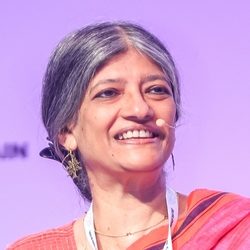
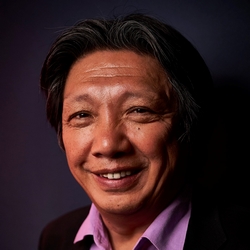


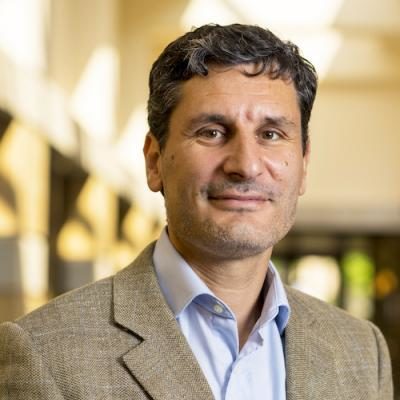


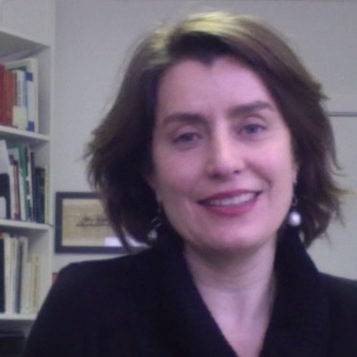

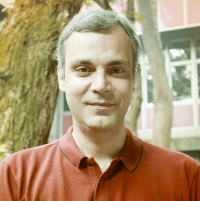



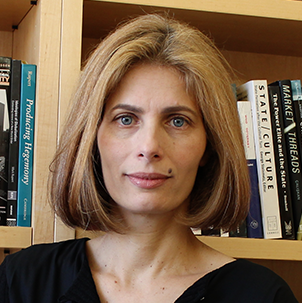
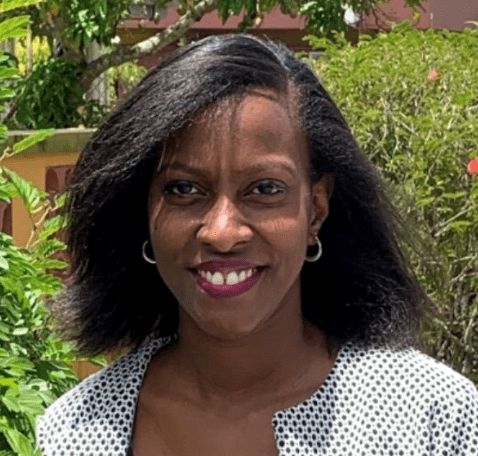
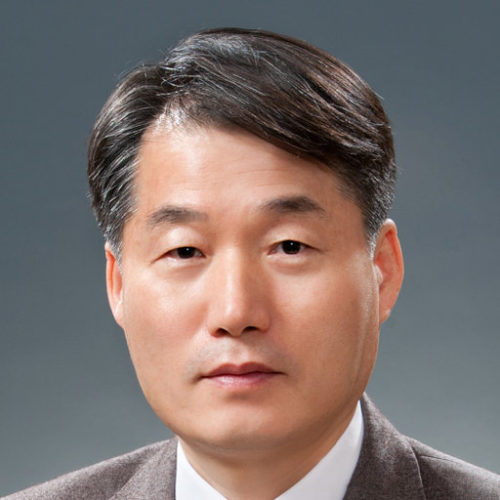
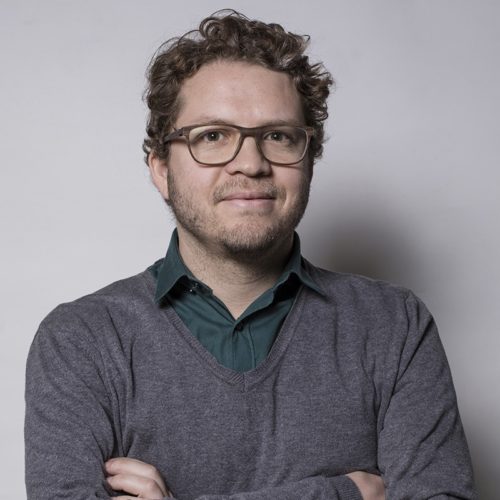


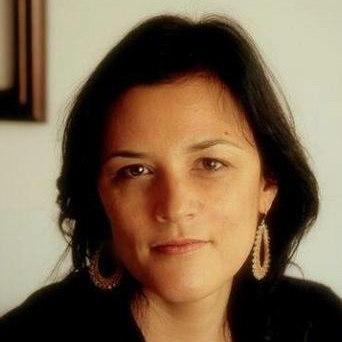



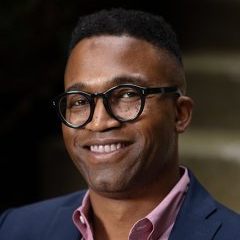


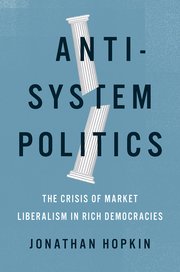

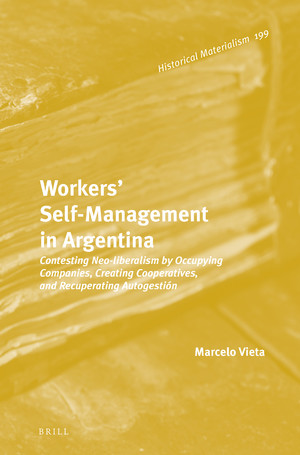

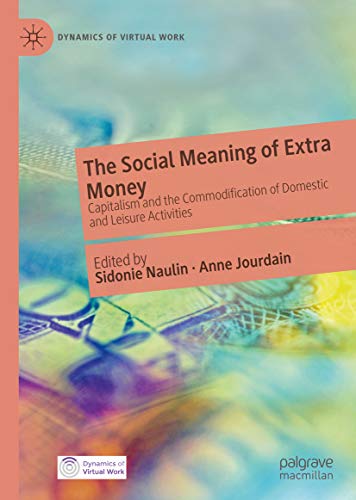

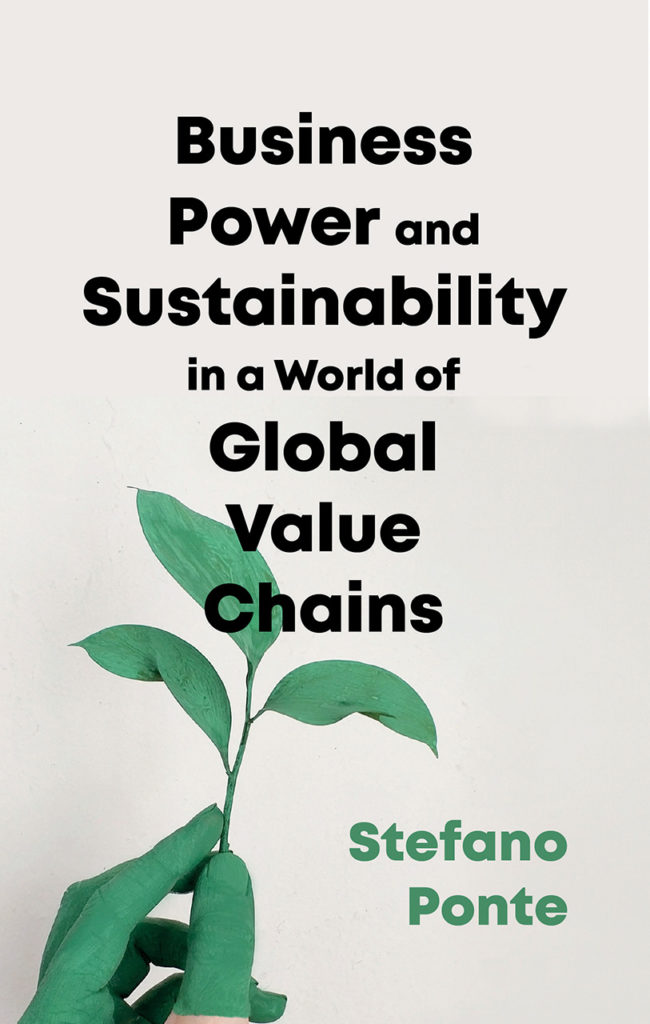

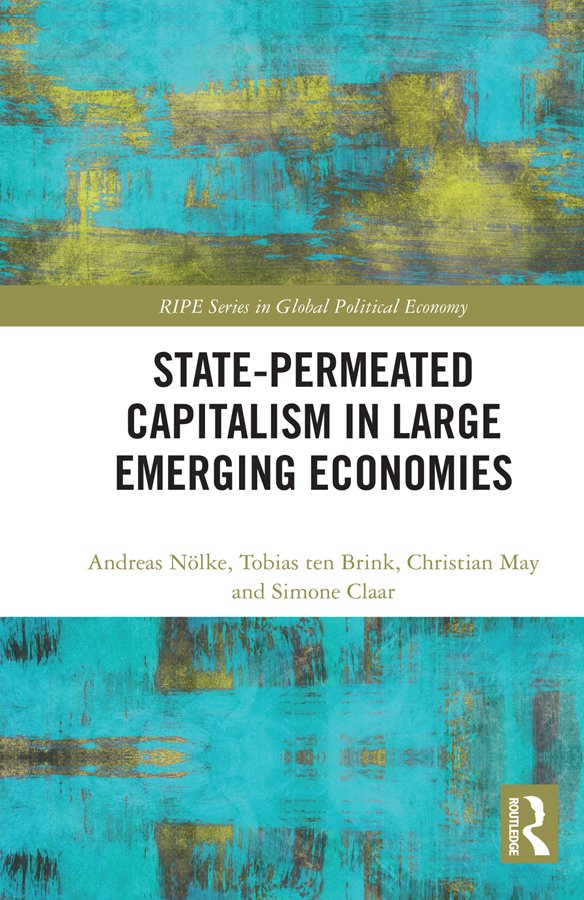
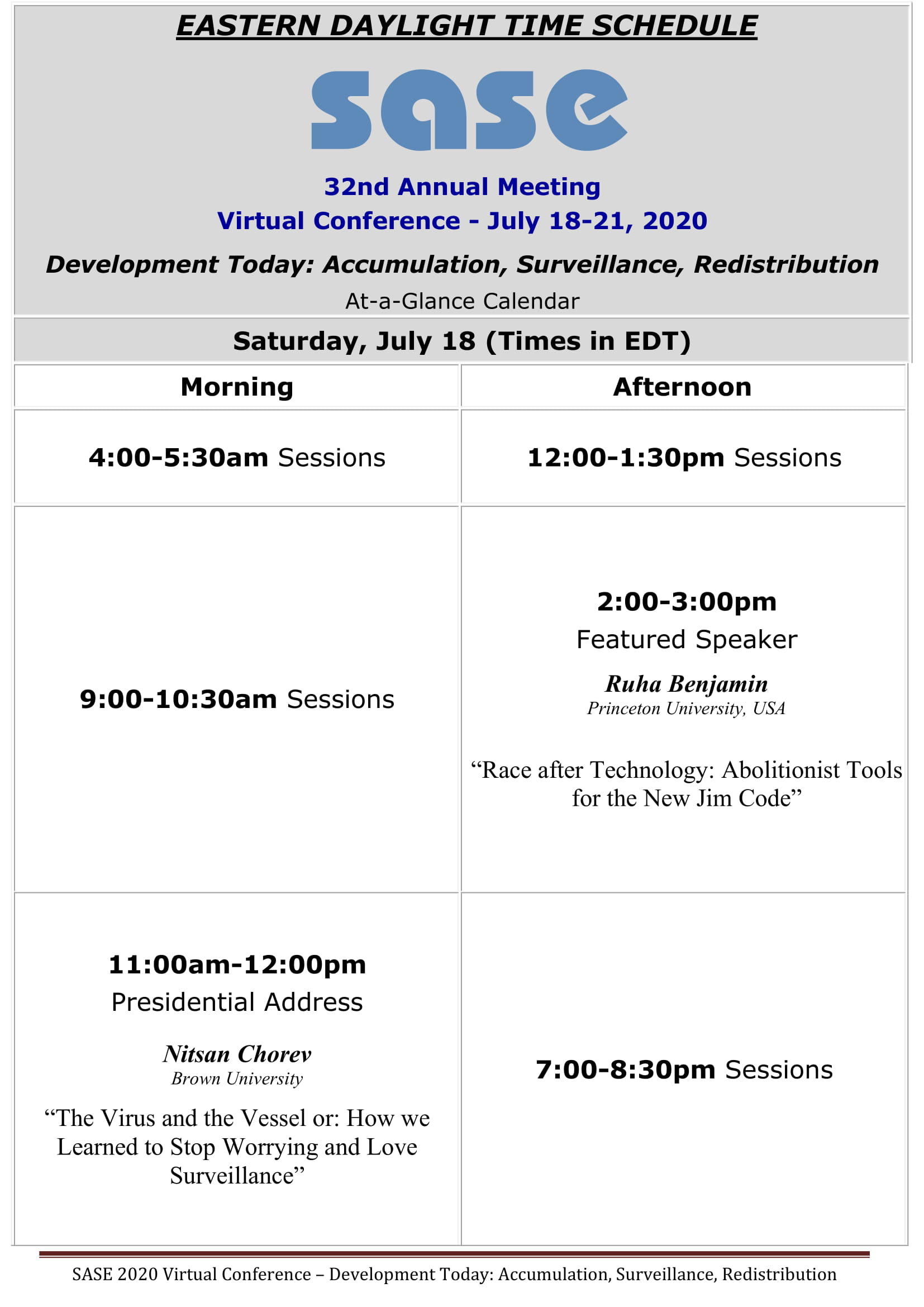
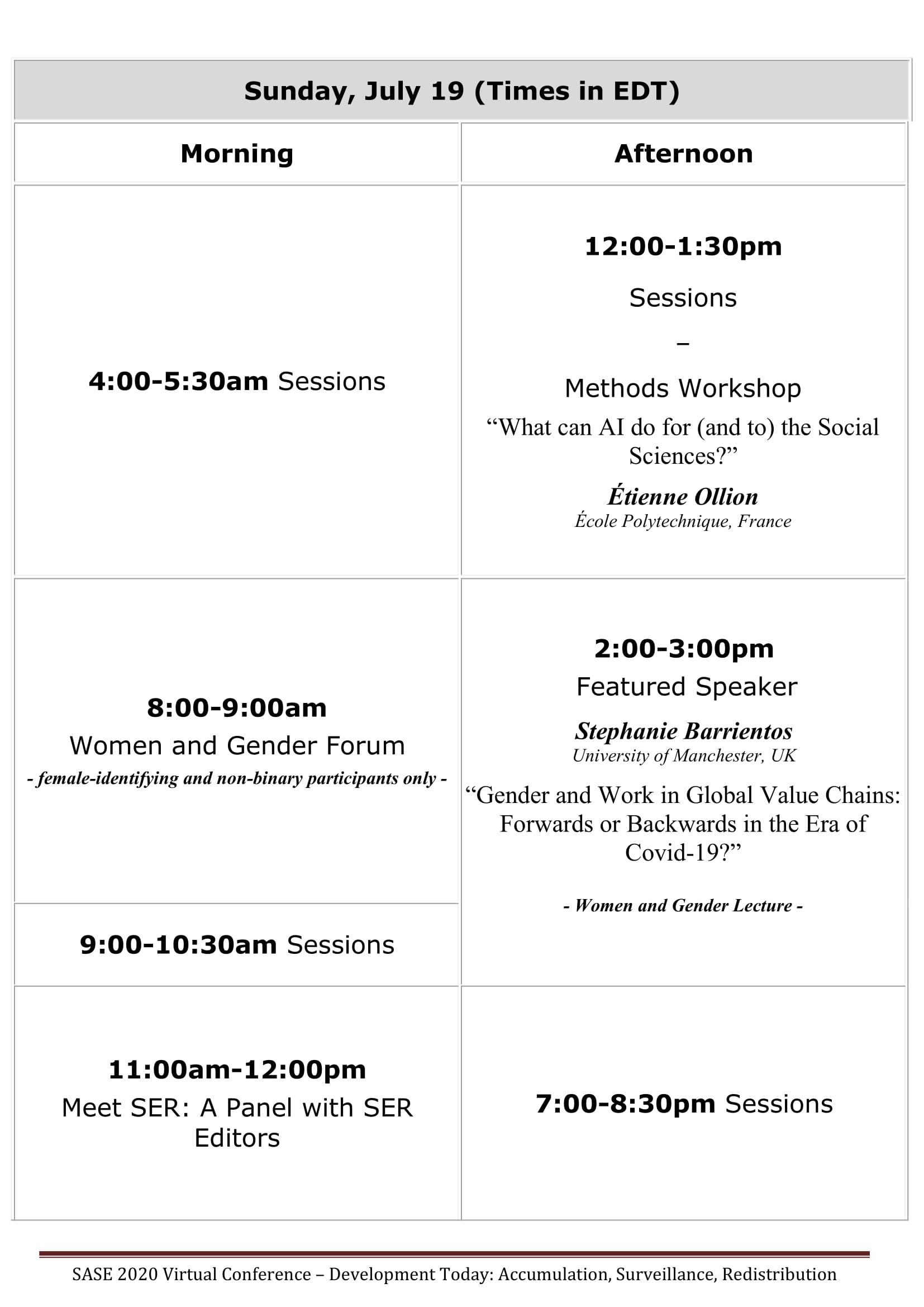
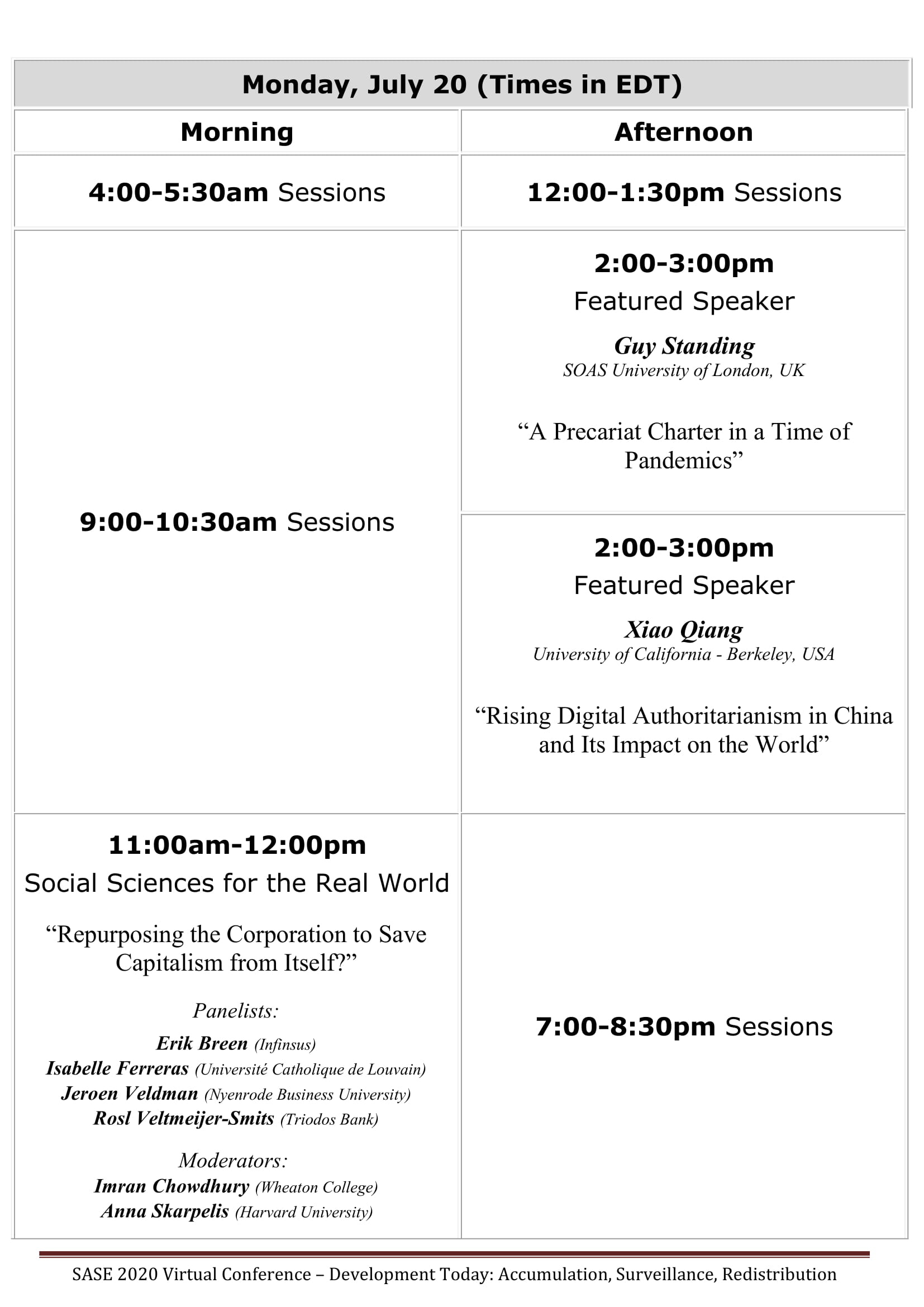
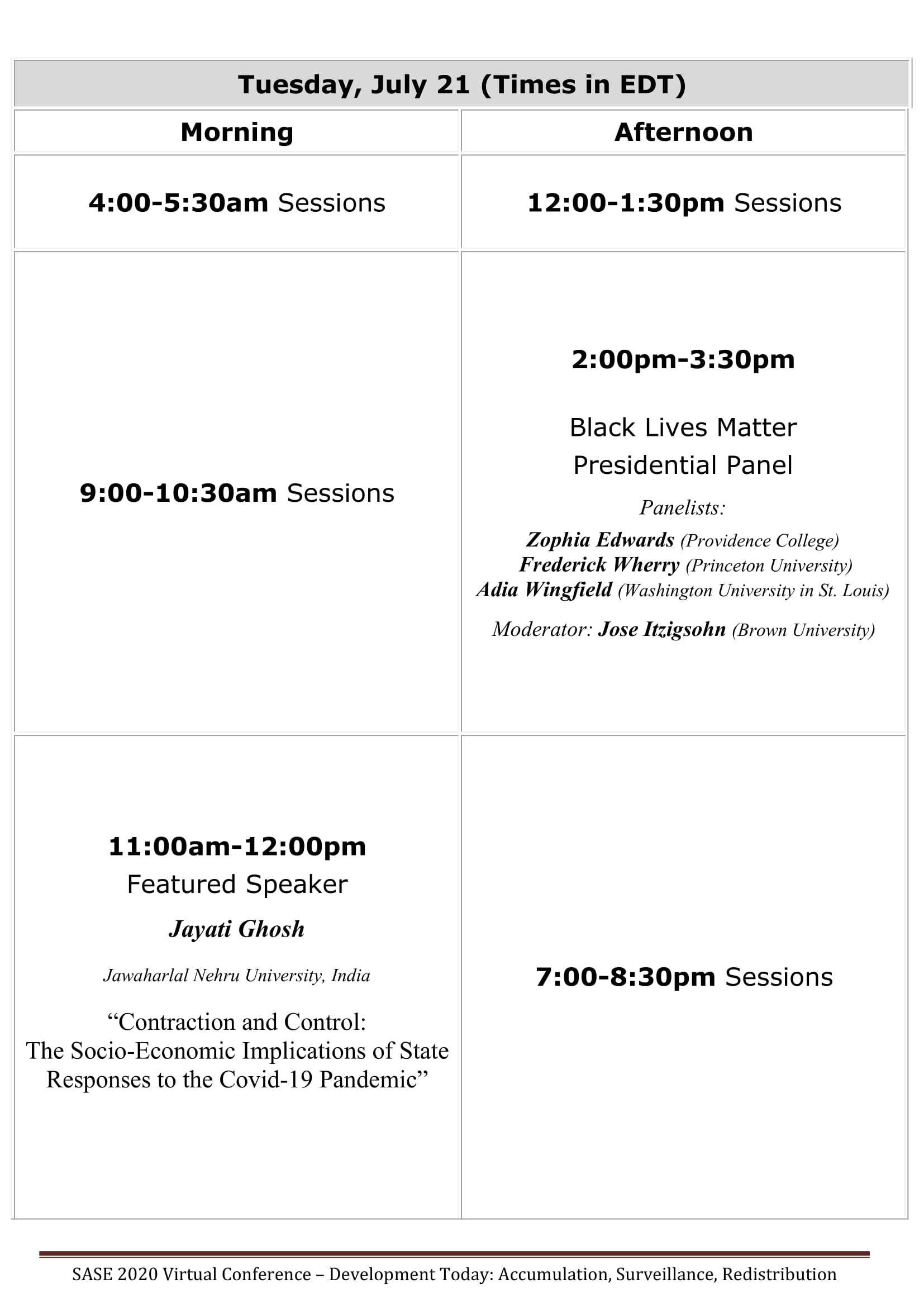


Social Sciences for the Real World
SS4RW – 2020 – Repurposing the Corporation to Save Capitalism from Itself?
11am-12pm EST (5pm-6pm CET)
Monday, July 20th
The current pandemic is expected to have a major impact on economies around the world for years to come. In times of crises, economic growth, employment levels, and firm survival tend to become the top priority for politicians and business leaders alike. Other objectives – such as social and environmental sustainability – fall into the background. Indeed, corporate expenditures related to social and environmental initiatives are often considered the first costs that can be cut.
At the same time, the current crisis comes at a moment when companies face increasing societal pressures to become more socially and environmentally responsible. From the Black Lives Matter and ‘Climate Strike’ movements, to the Extinction Rebellion protests, to high-profile academic and civil society projects seeking to develop new theoretical foundations which redefine corporate purpose beyond shareholder value maximisation (see here, here, and here), societal pressures on companies are arguably stronger now than ever before.
Many of these movements see Covid-19 not just as another crisis, but rather a direct result of an unsustainable economic model, and debate has raged over the question whether the processes of global capitalism can be blamed for the quick spread of the virus and the inability of countries to react to it. In this context, various societal actors are seeking to make sure that the post-Covid-19 rebound will be used as an opportunity for a ‘green recovery’ and a ‘Green New Deal’ that will fundamentally change the dominant economic model.
Companies adopting ‘low road strategies’ that focus on producing at low cost to be able to sell at prices that are affordable for financially squeezed customers may certainly benefit from the crisis. Nevertheless, there are signs that many other companies are willing to use the crisis as an impetus to undertake ambitious reforms towards more sustainable business models. Thus, Danone’s shareholders recently voted to turn the company into an ‘Entreprise à Mission,’ thus enshrining in its articles of incorporation a corporate purpose that goes beyond shareholder value. According to its CEO Danone’s shareholders have thus ‘toppled a statue of Milton Friedman.’
The tensions between economic necessities in the context of the post-crisis recovery and public pressures on companies to do more to reconcile them with a broader range of stakeholder interests and goals can be expected to become more prominent still in the years to come. Indeed, given the corrosive impact that the post-2008 Global Financial Crisis phase of austerity has had on public support for the current economic and political order, it may not be an exaggeration to suggest that repurposing the corporation and moving away from a singular focus on shareholder wealth may become a vital question for the future of modern capitalism and democracy.
This year’s Social Sciences for the Real World (SS4RW) session brings together academics and practitioners who deal with the question of the purpose of the corporation in their daily work and will discuss the crucial question whether “repurposing the corporation to save capitalism from itself?” is feasible and desirable.
We seek to bring together – albeit virtually – a panel of academics and interested members of the public to engage in a constructive debate about this crucial issue, and about how social scientists and people in the “real world” perceive them and what they can learn from each other.
Repurposing the Corporation to Save Capitalism from Itself?
Speakers: Erik Breen (Managing Director and Owner Infinsus), Isabelle Ferreras (Université Catholique de Louvain), Rosl Veltmeijer-Smits (Triodos Bank NV), Jeroen Veldman (Nyenrode)
Chairs: Imran Chowdhury (Wheaton College), Anna Skarpelis (Harvard University)
We would like to encourage participants to send us ahead of the session their general questions on the topic or specific points they would like to see speakers address. This will allow us to get a sense of what may be of most interest to the audience. Please e-mail them to G.Schnyder@lboro.ac.uk with SS4RW question in the subject header.